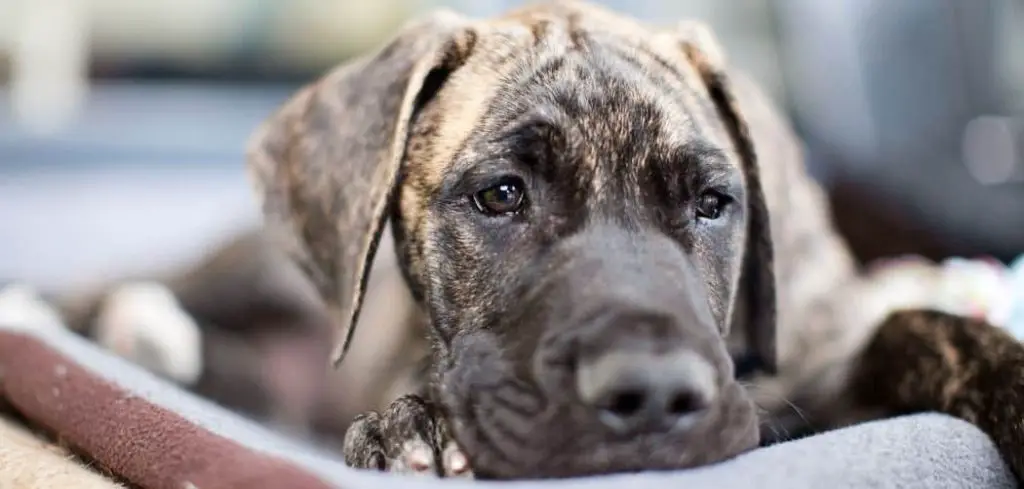When your dog suddenly starts sneezing without showing any other signs of illness, it can leave you wondering if it’s something harmless or something more concerning.
Sneezing can be completely normal, but persistent or unexplained sneezing may signal an underlying issue that needs attention.
We outline the common causes of dog sneezing with no other symptoms, what you can do at home, and when to seek veterinary help.
Dog Sneezing No Other Symptoms — Why It Happens
A dog may sneeze without showing other symptoms due to simple irritations, allergies, infections, or even playful behavior. Sometimes it’s just dust, pollen, or a foreign particle that triggers the sneeze. Other times, it may be related to nasal mites, mild allergies, or a dental problem that hasn’t yet caused additional visible symptoms.
Dogs may also sneeze during excitement or play, which is typically harmless. While occasional sneezing is often nothing to worry about, frequent or repetitive sneezing should not be ignored.

Dog Sneezing No Other Symptoms : Common Causes
Irritants and Environmental Triggers
Dust, pollen, smoke, perfumes, or cleaning products can easily irritate your dog’s nasal passages and cause sneezing.
Dogs have highly sensitive noses, and even a small amount of airborne irritants can provoke a sneeze.
If your dog sneezes after you vacuum, spray air fresheners, or spend time outside during allergy season, the environment may be the culprit. In these cases, sneezing is often isolated and doesn’t come with coughing, lethargy, or discharge.
Read more: Dog Panting and Coughing (What it could mean)
Allergies
Seasonal allergies or sensitivities to things like pollen, mold, or dust mites can cause sneezing in dogs.
While human allergies often cause itchy eyes or runny noses, in dogs, sneezing may be one of the first noticeable signs.
If your dog sneezes more during spring or fall or after being outdoors, allergies could be to blame.
Some dogs with allergies may later develop mild watery eyes or occasional itching, but in the early stages sneezing may be the only symptom.
Nasal Mites
Nasal mites are tiny parasites that live inside a dog’s nasal passages. They can cause irritation, itching, and frequent sneezing, even when no other symptoms are present at first.
Dogs usually pick them up from other dogs in parks, kennels, or shared environments.
While mild cases may only cause sneezing, more severe infestations can progress to nasal discharge, nosebleeds, or pawing at the face.
Play and Excitement Sneezing
Dogs often sneeze when they’re excited or engaged in play. This is called “play sneezing” and is a form of communication among dogs.
If your dog sneezes while roughhousing, running, or when you arrive home, it’s usually nothing to worry about.
These sneezes are often short, sharp, and repetitive, and they don’t indicate illness. However, if sneezing continues outside of playtime, another cause may be at work.
Foreign Objects in the Nose
Sometimes, a blade of grass, seed, or tiny piece of debris can get stuck in your dog’s nasal passages. This can cause sudden, repeated sneezing as the body tries to expel the irritant.
If the object doesn’t come out on its own, it may cause ongoing sneezing and eventually lead to nasal discharge or even nosebleeds. Dogs with something stuck in their nose may also paw at their face or shake their head frequently.
Dental Issues
Problems with the upper teeth, such as infections or abscesses, can sometimes extend into the sinus cavities.
Because the roots of some upper teeth are so close to the nasal passages, a dental infection can irritate the nasal lining and cause sneezing.
At first, sneezing may be the only symptom, but over time it can progress to bad breath, reluctance to chew, or facial swelling. Dental-related sneezing is often overlooked in the early stages.
What to Do If Your Dog Is Sneezing With No Other Symptoms
If your dog sneezes occasionally without showing other signs of illness, you can often observe at home. Try to limit exposure to household irritants, vacuum frequently to reduce dust, and avoid smoking near your dog.
Wiping their face after outdoor walks can also help reduce pollen buildup.
If allergies are suspected, you may notice patterns based on seasons or environments.
Keeping track of when sneezing happens can help your veterinarian narrow down causes. For dogs who sneeze while playing or when excited, no treatment is usually needed.
However, if sneezing persists for more than a few days, becomes more frequent, or seems uncomfortable, a veterinary check-up is recommended to rule out underlying causes like nasal mites, infections, or dental problems.
When to Call or Visit Your Vet
You should contact your vet if sneezing is persistent, worsening, or accompanied by other concerning signs.
Nasal discharge, blood from the nose, pawing at the face, or difficulty breathing all require prompt evaluation.
A dog with something lodged in the nasal passage should see a vet quickly, as objects can cause infections if left untreated.
Frequent sneezing with no relief, especially in older dogs, should also be taken seriously, as growths or tumors in the nasal cavity may begin with mild symptoms.
If you notice your dog’s appetite dropping, energy declining, or sneezing becoming forceful and repetitive, it’s better to have your vet check them rather than waiting for symptoms to progress.
Read more: Dog Coughing No Other Symptoms (When it’s harmless and when it’s not)
Key Takeaway
Occasional sneezing without other symptoms is often harmless, especially if it happens during play or after exposure to dust or pollen.
But persistent or unexplained sneezing may indicate allergies, nasal mites, foreign objects, or dental problems.
Monitoring your dog closely and seeking veterinary advice if sneezing continues ensures your dog stays comfortable and healthy.
Sneezing may seem minor, but it’s always worth paying attention to your dog’s signals.
